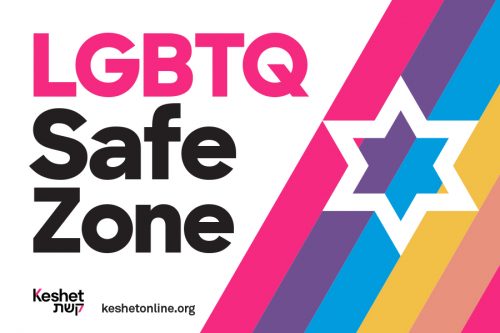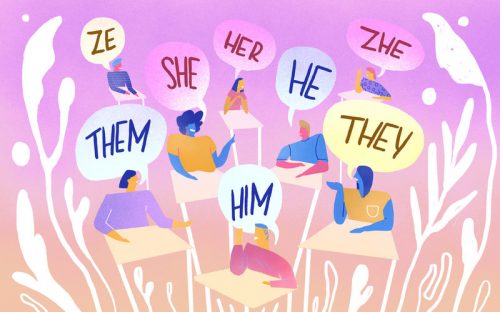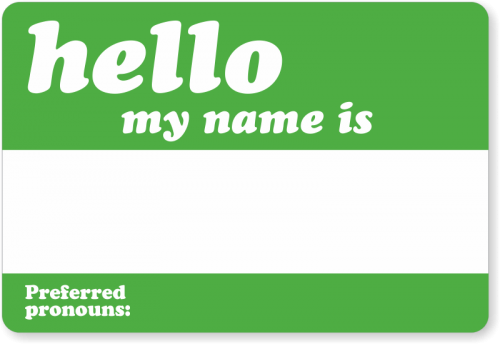What pronouns taught me about belonging

A blog post by Deputy Director Tracie Guy-Decker. Read more posts from Tracie by clicking HERE.

About 8 years ago, I attended a training about trans student inclusion at the major university where I worked. I attended the training and felt pretty good about myself. I thought I had a good understanding of the issues. I figured I would use whatever pronouns a person asked me to use, end of story. I even chose to put a sticker on my office door at the university that indicated my office was somewhere a student could find respite and help in dealing with issues arising from their LGBT identity. Though I am cisgender (that is, the gender of my soul matches my physical sex characteristics) and in a heterosexual marriage, I believed I was a strong ally. I believed that since I had accepted my first cousin’s genderqueer significant other, I was evolved, and had no real work to do regarding trans acceptance.
Fast forward a couple of years to about five years ago, when I became involved with a local activist and advocacy community. In group meetings, this community makes a practice of having folks introduce themselves with their name and their preferred pronouns. In other words, at each meeting or event, when introductions came around to me, I’d have to say “I’m Tracie, and I use she, her, hers.”

I suffered through what felt like performance for weeks and months at meetings with this group, quietly resenting it. Then one day, everything changed. As we went around the table with introductions and pronouns, a new person I hadn’t met was there. This person, who I assumed was female, said their name, I’ll call them “A,” and then “I use they, their.” Friends, because this was the time in the meeting when we all declared our pronouns, A’s they/there was No. Big. Deal. And that’s exactly why a bunch of cisgender men and women had been sharing their pronouns for all those weeks and months. It wasn’t for us. It was for A and others like them.

I had assumed that my good intentions toward trans individuals would be enough. Hearing A declare their pronouns amidst a room full of people who also declared their pronouns dissolved my quiet resentment. A needs to declare their pronouns regularly, because they are often misgendered, as I had initially done to them. A does not identify as “she,” but as “they,” and the only way I could know that is to ask or to be told. By saying my pronouns at every meeting, declaring pronouns became normal for me. That normalizing of pronoun declaration is what A needed in order for them to be both gendered accurately and to feel truly welcomed.

But I wanted to tell this story, of how it finally made sense to me, because I want to recognize the discomfort the practice can cause when it is first introduced. Maybe it feels silly or unnecessary to you, as it did for me when I was first asked to do it. I hope you will push through the discomfort and do it anyway, especially when meeting groups of young people who are likely much more comfortable with the practice. When cisgender people take the time to declare their pronouns, we aren’t providing unnecessary information, we are saying to trans and non-binary people, “we see you.” When we do it all the time, and normalize the practice, whether or not we know trans or non-binary folks to be present, we are saying to trans and non-binary people, not only “we see you,” but “you belong here.”
It is a message I, for one, wish more people felt in more places.
More on pronouns:
“Even a Grammar Geezer Like Me Can Get Used to Gender Neutral Pronouns,” Fresh Air on NPR
Creating Authentic Spaces: A Gender Identity and Gender Expression Toolkit
